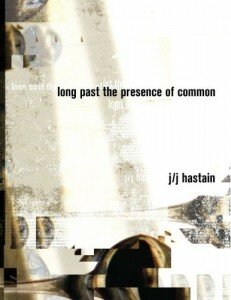No, I Will Be In The Woods
by Michelle Taransky
Brave Men Press 2011
Review by Laura Goldstein
Maybe the first thing that you'd like to know about this book is that “[t]he cover was printed on a beautiful Vandercook, No. 4 < 6912> in Charlestown, MA, using Fabriano Tiziano paper. The text is Verdana and was laser printed on Cougar Opaque Vellum” because before you even read it, you might appreciate that this is a beautiful chapbook made with care. It's similar in presentation to those Burning Deck books that you may have collected in your travels to special bookstores around the country. You can actually touch and feel the title. Do it. Say, “No, I Will Be In The Woods”. Say it out loud. Like The Poetics of Disobedience by Alice Notley, this is a statement of resistance. These are different kinds of poems.
Towards the end of the book, in the poem One Thing Has To Fall After Another, Michelle writes that “I don't really write/ stories or talk about responding to/ the testimony where we decided/ to invent each other...” It's like a little key that you might want to use in a tree, unlocking access to the treeline, all the other trees appear. Lines as branches, etc. There's a line in every poem that I notice, like when looking at a tree, when I get a rare chance, and there's one branch that I notice and it provides the narrative of the rest of the tree. What the tree means. And then with the rest of the trees in the woods.
Narrative is the ultimate mystery of the woods that Michelle has created here. The follow up to her prize-winning Barn Burned, Then (Omnidawn, 2009), Michelle is parsing out a whole new set of poetic and cultural elements. Each poem in this chapbook is a suggestion, and together there is a sort of narrative that is probably different for every reader. Which branches do you notice? Bob Perelman urges us, in the epigraph, to notice that “[t]he leaves are falling. Point things out./ Pick up the right things.” So as Michelle “made symptoms/ into a sentence” as you move through these woods, you may not know exactly where you are at first. “[T]he room of only/ capital/ letters”?
She claims to have “ideas about chances” but then writes a poem “For Days I Have No Idea” in which “assembly line a tree cut with a miniature axe”, suggesting the constant use of language to make our lives, and which our little eyes are always consuming. With each poem in this little volume, Michelle maps out interlocking notions in miniscule ways. The progression of a logic from one side of a sentence to another, divided by the poetic of the line. The interference of image, the fiction of semantics. Because, of course, alternately, “For Days I Have No Ideas”, “nothing is a sentence is it a line leading to a safe that was there until then you are nearer the relationship between courtroom and curtain...” which explains certain connotations of the very last poem, “From The Woods, The Sound” among which the echoes of Stein are reaching our ears. When a poem falls on a page in the past, how do we hear them?
Michelle Taransky's poetic, and oeuvre, involves a journey in the literary tradition of Dante. In Barn Burned, Then, she explored the metaphysical implications of the changing plains in the middle of the U.S., and in this little volume she goes into the woods, as the title adamantly insists. You can see them when looking at a map of an area, and a map's story is particular, like poetry's. The woods that Michelle writes and explores in her new chapbook are the ones that make up this mysterious space, where even in full knowledge of the inevitability “[t]o be placed in the woods. That you know/ to stay focused on the plot/ it is always about to bring us through...” this is somewhere new.
*
Taransky’s No, I Will Be in the Woods is available from Brave Men Press. To read an excerpt, or purchase a copy, please visit BRAVE MEN PRESS.
To read an excerpt of 4Play, a collaboration between Michelle Taransky, Joseph Cooper, jj hastain, and Travis Macdonald in the current issue of summer stock journal, CLICK HERE.
*
LAURA GOLDSTEIN's poetry and essays can be found in American Letters and Commentary, kill author (August 2012), MAKE, jacket2, EAOGH, Requited, Little Red Leaves, and How2. Her chapbook Let Her was released from Dancing Girl Press in early 2012, and her newest chapbook, Inventory, was released by Sona Books in June 2012. She also has two other chapbooks that are out of print, Facts of Light and Ice in Intervals. She currently co-curates the Red Rover reading series with Jennifer Karmin and teaches Writing and Literature at Loyola University.
.jpg)
.jpg)

.jpg)



